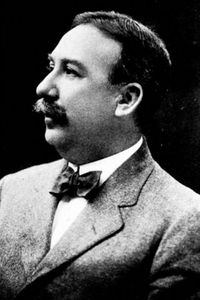In the late 1890s, Porter held dual roles as a projectionist and mechanic, eventually ascending to the positions of director and cameraman for the renowned Edison Manufacturing Company.
Inspired by the pioneering works of the "Brighton school" and the innovative story films of Georges Méliès, Porter went on to create a series of groundbreaking short films, including the influential "Life of an American Fireman" (1903) and "The Great Train Robbery" (1903).
Throughout these early cinematic endeavors, Porter played a crucial role in shaping the modern concept of continuity editing, thereby laying the groundwork for the development of film structure by D.W. Griffith, who would later build upon Porter's discovery that the fundamental unit of film construction is the shot, rather than the scene.
Undeterred by the rise of the industrial film production system born out of the popularity of nickelodeons, Porter made the bold decision to leave Edison in 1909 and establish his own independent production company, which he ultimately sold in 1912.










